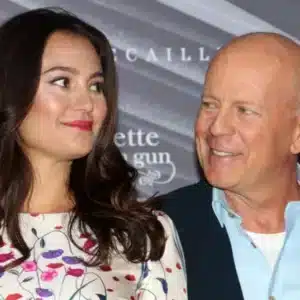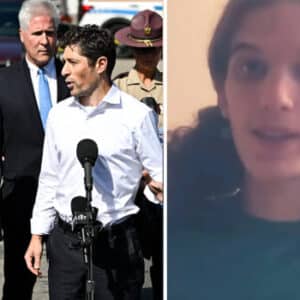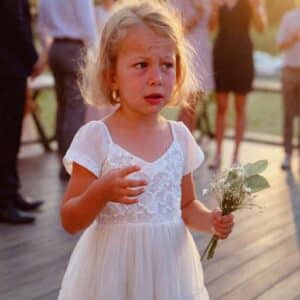Jason and I gave everything to our children.
We stitched their childhood together with threadbare dreams and secondhand sweaters, always hoping they’d never feel the lack we did. While they wore new shoes, we patched old ones. While they grew strong on warm meals, we sometimes made do with empty plates and full hearts.
Every late night, every early morning, every compromise and quiet sacrifice — it was all for them.
We never wanted much in return. Just to see them thrive, to feel the warmth of their voices when they called home, to know that in some small way, they remembered how much we had loved.
But life… it has a way of shifting when you’re not looking.
Now, in the twilight of my years, the laughter that once filled the hallways has faded into memory. The silence is a different kind of loud — not peace, but absence.
Jason is gone now.
And the house we built, the one with creaky stairs and scuffed walls from too many toy trucks and sticky handprints — it’s just me here now. Me and the echoes.
I stopped locking the door some time ago. Not out of expectation. Just fatigue. Fatigue from always hoping the next knock would be from someone who remembered. Fatigue from being invisible in a home I once anchored.
I wasn’t waiting anymore.
And then, one ordinary afternoon, came the sound that stopped my breath.
A knock.
When I opened the door, I found not a familiar face, not a returning child, but a stranger. A young woman, mid-twenties perhaps, stood there awkwardly with curly hair falling in soft spirals, eyes wide with the kind of uncertainty that belongs to people still learning where they belong.
“Sorry, wrong flat,” she mumbled, already turning away.
But something in her hesitation reached me. Or maybe something in my stillness reached out to her.
“Would you like a cup of tea?” I asked before I could talk myself out of it.
She blinked, then slowly smiled. “Sure.”
Her name was Mina.
She was new to the city. Far from her family. Lonely in that quiet, invisible way that makes your footsteps echo too loudly in empty rooms.
She started coming by, sometimes once a week, sometimes twice. We’d share tea and banana bread and small, trembling laughter. I told her about Jason — how he once brought me wildflowers every Friday, how he nearly fell off the roof fixing a leak during a thunderstorm and came down looking like a drowned squirrel.
Mina listened.
Not out of obligation, but out of presence.
Then, on my birthday — the one none of my children remembered — Mina knocked on my door holding a tiny cake. One candle flickering like a hopeful whisper.
I cried that evening.
Not because of the cake, though it was delicious. But because it had been years since someone remembered me — not as a mother, or a widow, or a phone number buried deep in someone’s contact list. But as a person. A soul with a birthday worth celebrating.
A few days later, I received a text from Emily, my youngest. Five words: Hope you’re doing okay.
No call. No visit. Just that.
Strangely, I didn’t crumble.
I didn’t even cry.
Because that day, for the first time in years, I felt something else entirely.
Freedom.
I stopped waiting for what might never return. I let go of the ache that comes from hoping someone will knock just because they should.
Instead, I started living again.
Slowly. Carefully. Like coaxing life back into a forgotten garden.
I went for walks, even when my knees creaked. I bought fresh basil and planted it in a chipped pot by the window. I signed up for a ceramics class and made the ugliest, most delightful little cup I’ve ever owned. It wobbled and cracked, and I adored it.
Mina came by for dinner occasionally. Sometimes she didn’t. And that was okay.
Her presence, even in brief visits, breathed something real into this house again.
Then, one day, something came in the mail.
An envelope, with no return address. Inside was a photograph — Jason and me, decades ago, barefoot on a beach, grinning at the camera like we had just discovered the secret of happiness. We looked so young. So alive.
On the back, just three words in handwriting I didn’t immediately recognize:
I’m so sorry.
No name. No explanation.
Maybe it was one of the children. Maybe not.
I stood there, holding that photo, the past pressing gently against my chest. And I whispered, “I forgive you.”
Because over time, I’ve learned something they don’t tell you when you become a parent:
Being needed is not the same as being loved.
For years, we were needed. We gave and gave until we became part of the background — the light always left on, the coat always hung, the meal always hot.
But true love?
It’s someone showing up not out of guilt, or duty — but because they want to.
Because they care.
So if you, like me, feel forgotten… don’t close your heart.
Leave the door open — not for those who chose to leave — but for the ones still finding their way in. Love doesn’t always come the way you expect.
Sometimes, it arrives lost.
With curly hair, tired eyes, and a soft voice saying, “Sorry, wrong flat.”
And sometimes, that’s where everything begins again.





